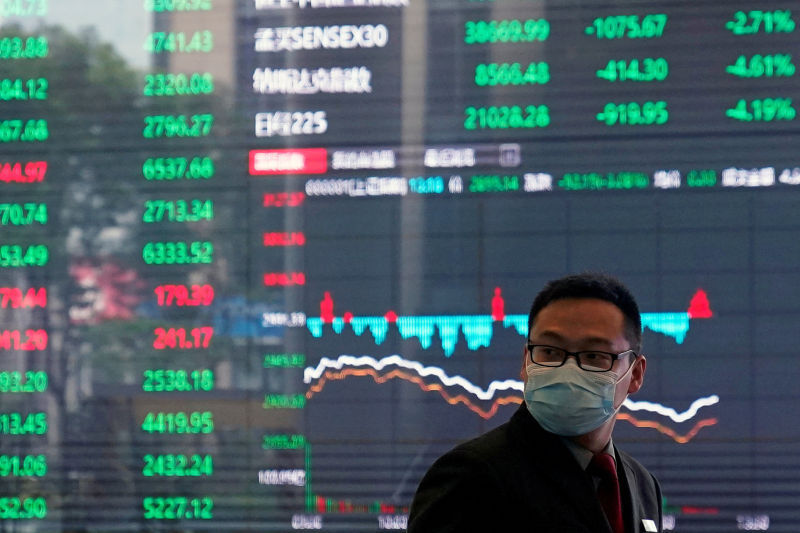A range of negative factors slowing the economy in mainland China this year has led to some of Asia’s large China-focused hedge funds deploying more money in the US and buying up more non-China stocks, while cutting exposure to offshore Chinese assets.
Some of the factors at play include regulatory scrutiny, policy uncertainties, Beijing’s clampdown on technology companies, the real estate debt crisis, Sino-US audit tensions and disruptions from zero-Covid policies.
Sentiment has been hit hard, with portfolio managers saying it is difficult to see how companies could grow amid some of the recent challenges.
“The past year has been extremely difficult for funds that are based in Hong Kong and focusing on investing in offshore China stocks,” said a Hong Kong-based hedge fund portfolio manager, who declined to be identified due to the sensitivity of the subject.
“Many have had to cut exposure to China stocks and allocate some positions to the US or Southeast Asia.”
Hedge funds are aggressive users of leverage and derivatives to generate yields. China-focused funds have traditionally kept a large portion of portfolios in American Depository Receipts (ADRs) of mainland firms.
ALSO SEE: China’s Home Sales Could Plunge by 20% This Year: Poll
HHLR Advisers, an investment management firm under private equity firm Hillhouse Capital Group, had three non-China companies in its top five US-listed holdings in the second quarter compared with just one in the second quarter of 2021, 13F filings to the US Securities and Exchange Commission show.
HHLR is one of the largest offshore China managers and known for its heavy positions in US-listed Chinese stocks. Its three top non-China holdings are customer relationship management platform provider Salesforce, food delivery firm DoorDash and gaming and e-commerce company Sea. Its top holding, comprising 19% of its portfolio in US-listed stocks, is Chinese drug developer BeiGene.
Hong Kong-based Aspex Management which manages more than $7 billion and focuses on pan-Asian equity, backed by Hillhouse Founder Zhang Lei, has also switched holdings. Four out of five of Aspex’s top buys among US-listed firms in the second quarter were non-China names, including DoorDash, semiconductor equipment supplier Lam Research, NVidia and Las Vegas Sands.
Its non-China exposure now accounts for about 31% of its top 10 US-listed holdings, a significant increase from about 15% in the first quarter of 2022, or 14% in the same period last year, based on calculations according to 13F filings.
The China ADR index is down more than 60% from a peak on February 16 2021, far more than Nasdaq’s 17% drop for the same period.
Regulatory Risks
China-focused Tairen Capital reported four out of five top buys in the second quarter were non-China names, while eight out its top 10 US-listed holdings were non-Chinese companies.
Tairen was once among top investors in China‘s e-commerce platform Pinduoduo. In the second quarter of 2021, the firm’s largest US stock listing position was Pinduoduo with a market value of over $200 million, but as they shed that stock over the next two quarters, the fund’s largest position in the most recent quarter was Microsoft.
Many China-focused funds have been hiring analysts with experience in US markets.
In a letter to investors in April, Hong Kong-based Anatole Investment CIO George Yang said the firm would deploy more capital to the United States, where they can find “opportunities with long duration and therefore great beta”. That came after the fund posted the worst quarterly result since they launched in 2016 in the first quarter.
The trend of increasing exposure to non-China stocks is unlikely to be a short-term trend to hedge China risk, according to a Hong Kong-based equity sales director focused on the technology, media and telecom sector.
However, some investors doubt this is a sustainable way to hedge risks particularly for funds that had posted disappointing returns in their home market.
Damien Tan, managing director at Cambridge Associates believes the non-China exposure will not represent a major part of the portfolio, especially for China-focused managers, as these managers need to “demonstrate how they have a competitive edge to underwrite and research these non-China names”.
Pierre Hoebrechts, CIO at Hong Kong-based Arowana Asset Management who has been investing in China for 12 years, said most China funds had faced challenges picking stocks in their market of expertise in the past 18 months, and hence there were fair doubts about their ability to navigate a market where they have little long-term experience.
He also pointed to the substantial difference in valuations between China and the United States in many sectors, following the very large correction the Chinese market has suffered.
“Investors might wonder to which extent that market might actually have many more opportunities than the US at this stage.”
- Reuters with additional editing by Jim Pollard
ALSO SEE:
China’s Trade Seen Falling in August Amid Softer Demand
China Planning Huge Water Projects to Counter Drought, Floods
China Tariffs Will Stay in Place Despite Review, Says Biden
























